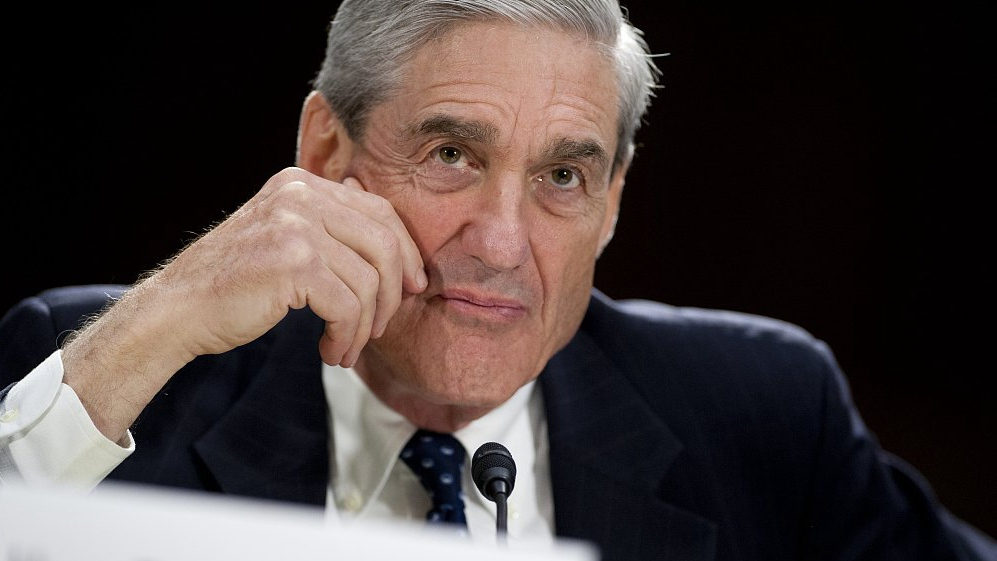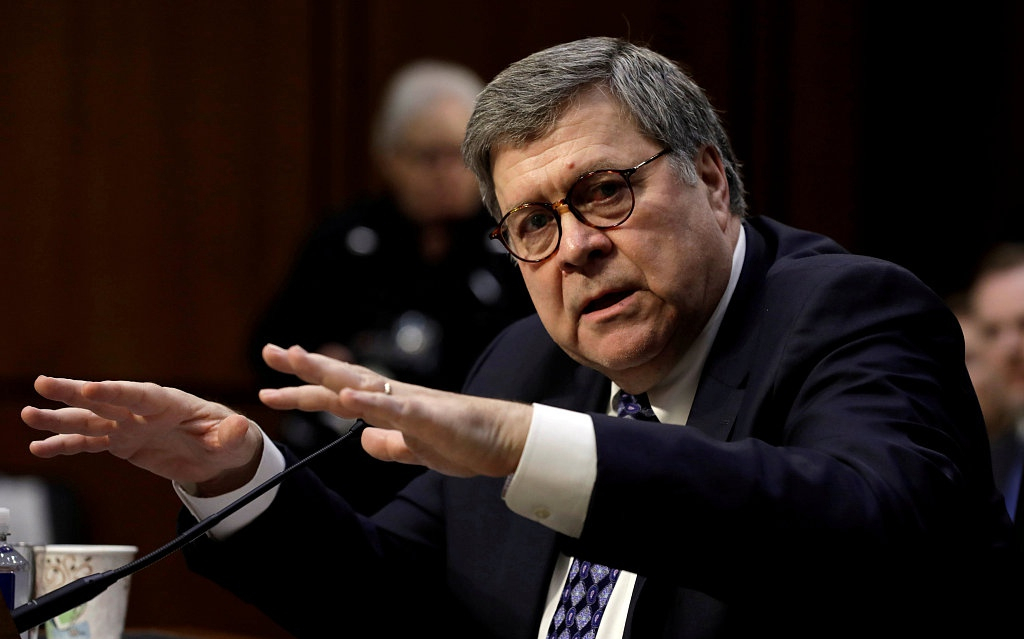
Opinion
18:02, 21-Apr-2019
Game of Thrones in Trump administration
Li Zheng

Editor's Note: Li Zheng is an associate research fellow at the China Institutes of Contemporary International Relations, Institute of American Studies and director of the American Security Center, Institute of American Studies. The article reflects the author's opinion, and not necessarily the views of CGTN.
Not long after William Barr released to the public that Special Counsel Robert Mueller found no evidence of U.S. President Donald Trump's illegal connections with Russia in the 2016 presidential election, the House Judiciary Committee chairperson Jerry Nadler issued a subpoena for an unredacted copy of Mueller's report.
Nadler believed that the redacted version of the report outlined "disturbing evidence that President Trump engaged in obstruction of justice" and the "responsibility now falls to Congress to hold the president accountable for his actions." The Russiagate drama is no less dramatic than the American TV series Game of Thrones that is being released worldwide.
First of all, Trump has been concerned about the perilous impacts that Mueller's report may exert on his presidency. Such concerns may stem from Trump's distrust of Mueller or his lack of self-confidence.
Although Mueller's investigation reached no verdict on whether Trump obstructed justice, it concluded that the president attempted to influence witnesses. This may indicate that the president wants to hide something from investigators, which may lead to new investigations and cause new troubles for him.
After the Mueller's report was released, the Democratic Party was very dissatisfied with the large amount of blacked-out content and believed that the material provided in the report was enough to prove misconduct by Trump. Democratic Senator Elizabeth Warren even called on the Congress to impeach the president based on the contents of the report.
Second, the report indicates the divisions within Trump's team. American journalists have been hyping the splits in the White House and the president's distrust of his team members. The popularity of American journalist Bob Woodward's book Fear: Trump in the White House, for example, has infuriated Trump.

William Barr testifies at a Senate Judiciary Committee hearing on his nomination to be attorney general of the United States on Capitol Hill in Washington, January 15, 2019. /VCG Photo
William Barr testifies at a Senate Judiciary Committee hearing on his nomination to be attorney general of the United States on Capitol Hill in Washington, January 15, 2019. /VCG Photo
Mueller's report, according to The New York Times, reveals that the White House is "a hotbed of conflict infused by a culture of dishonesty – defined by a president who lies to the public and his own staff, then tries to get his aides to lie for him."
Third, Trump has been adept at manipulating political tools for his own gain. Since the presidential campaign, Trump has been acting as if he was an outsider of Washington's politics. This has brought him a lot of good, as Americans always view Trump as a newcomer to politics and thus have been tolerant of his unruly words and deeds.
But Mueller's report indicates that Trump is a political guru adept at using praise, inducement, fear, refusal, etc. to achieve his private aims. This may explain why former Attorney General Jeff Sessions had a difficult time in office. The revelations may make the public much less tolerant of Trump.
Although Mueller's investigation is over, the Game of Thrones within the Trump administration is still on. The Mueller investigation, as many observers believe, will further expand the differences within the Trump team and the president will eventually face a team-building crisis.
This will bring more uncertainties to Washington's decision-making process and cripple its task-solving capabilities. The dramatic Game of Thrones is popular among the audience, but is it a good script for a country?
(If you want to contribute and have specific expertise, please contact us at opinions@cgtn.com.)

SITEMAP
Copyright © 2018 CGTN. Beijing ICP prepared NO.16065310-3
Copyright © 2018 CGTN. Beijing ICP prepared NO.16065310-3